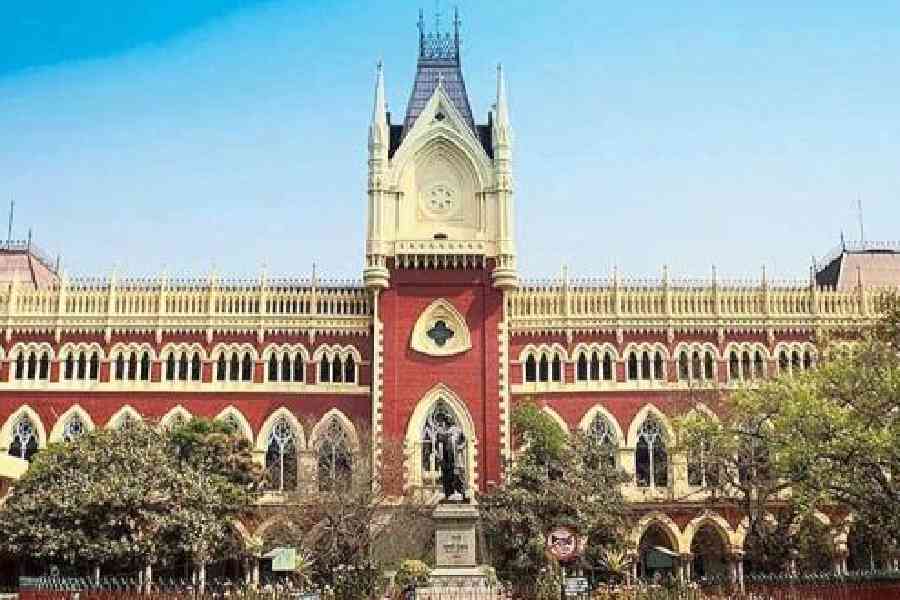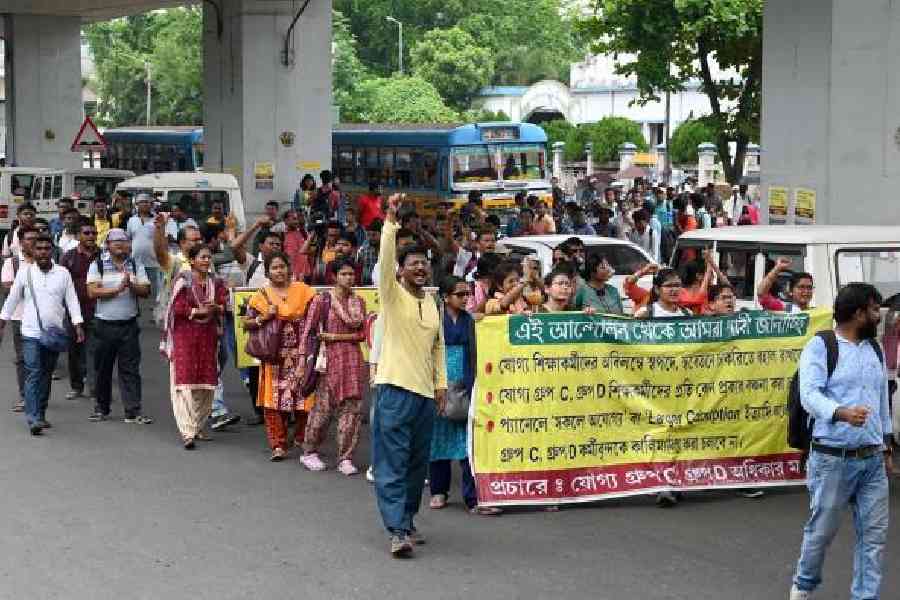The Calcutta High Court on Monday reserved judgment on a petition challenging the West Bengal government's introduction of a scheme for providing monetary support to non-teaching staff, who lost their jobs following a Supreme Court order.
Justice Amrita Sinha reserved judgment on the petition, which opposed the payment of Rs 25,000 to Group C and Rs 20,000 to Group D employees by the state.
The West Bengal government had recently introduced a scheme to provide "limited livelihood, support and social security on humanitarian ground" on temporary basis, subject to orders of any competent court, to distressed families of non-teaching staff in Group C and Group D categories, who were recruited through the 2016 selection process conducted by the WBSSC.
Nearly 26,000 teaching and non-teaching staff of West Bengal government-sponsored and -aided schools lost their jobs following a Supreme Court judgment, which found the 2016 selection process tainted.
Moving the petition by some waitlisted candidates for the 2016 hiring process, senior advocate Bikash Bhattacharya asked from where does the state derive powers to make laws to unsettle a Supreme Court judgment or that of a high court.
Claiming that the scheme is violative of the top court order annulling the appointments, Bhattacharya said that Article 162 of the Constitution, which categorises the extent of executive powers of the state, is subject to the provisions of the Constitution, by which the legislature has the power to make laws.
He stated that Article 162 does not empower the state to make a scheme to frustrate a judgment of the Supreme Court.
Bhattacharya prayed for intervention of the court on this premise and sought stay of the scheme.
When the court asked whether the state gave effect to this notification, Advocate General Kishore Dutta, representing the West Bengal government, said it has been done and one instalment had already been released.
Justice Sinha verbally asked the state not to distribute the money at present.
Opposing the petition, Dutta stated that the waitlisted candidates, who are the petitioners, cannot have any grievance in this scheme.
He said the petitioners should approach the Supreme Court since they claim that the scheme in question violates the order of the apex court.
Except for the headline, this story has not been edited by The Telegraph Online staff and has been published from a syndicated feed.











